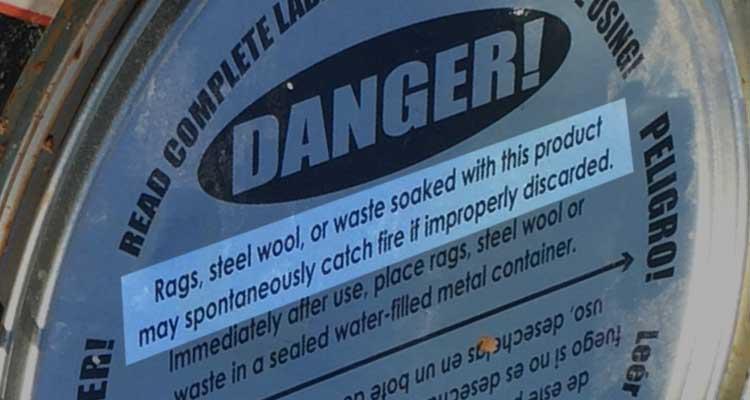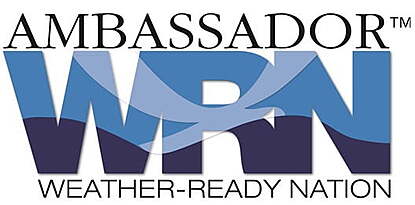Do these simple things to help keep your most precious investment, your home, safe and secure
Regardless of where we live or who we are, keeping our home and family safe is likely the highest priority we all share in common. There are some little things we need to pay attention to that can make a big difference in safety and security, but only when we recognize them and take the right actions we need to with them. Look at the list below. Then take time to go through your home and check off that these are NOT potential issues you need to worry about!

Free your home of electrical hazards
In some homes, there are more of these than the occupants probably realize are there. Things to check for include:
- Damaged, frayed, cracking or worn wiring, chewed wires, including extension cords if you are using these. These can continue to deteriorate and put you at risk for fires, arc faults or power surges.
- Also inspect for any loose connections in outlets or switches.
- Take an inventory of any cords you may have coming from appliances or electrical devices that may have overheated at one time or another.
- Dispose of any old electrical appliances that could be faulty. Crock pots, coffee makers. If you saw the episode in "This Is Us" when the faulty crock pot sparked, caught fire and ultimately burned their house down, you will be able to visualize how serious and fast fire can start and spread.
- Make sure none of your light bulbs are too close to flammable material – curtains, furniture, pillows, anything plastic, etc.
- Be cautious not to overload power boards with too many electrical appliances at one time. Have you ever had two hair dryers going at once and the power to them shuts off?
- Never try to work on any electrical device or appliance without first turning off the power to it. And never try to repair these electrical appliances using metal tools like a screwdriver or a knife with the power on. Doing this can result in a shock, sometimes severe shocks.
Smoke and Carbon Monoxide Detectors
These have the job of detecting smoke and carbon monoxide for us but can only do their jobs if they are in good working order. It’s very important to make sure you have both of these detectors in your home and that they are clean and functional, or they have no value to your safety. Simple checks twice a year can help you assure yourself that these are in tip top shape so you can literally rest easy at night and when you leave your home for any length of time. Some older homes were built before codes required their installation, so may not even have a carbon monoxide detector. If your home fits this bill, a great gift idea for your family could be the right number of these detectors for your home. They could turn out to be some of the best investments in your family's safety that you make.
Washers and Dryers are usually friendly appliances, but there are times when they can pose fire danger or flood issues in your home. Our best advice is to never leave your home when your washer or dryer are running. Especially for the risk of dryer fires which affect approximately 15,000 homes per year in our country according to the National Fire Protection Agency. Lint being the main culprit of dryer fires, making a diligent habit of emptying your lint trap in your dryer can certainly be a helpful contributor towards preventing dryer fires from starting. Having your dryer vents cleaned once a year is also recommended to help prevent this kind of fire. A simple and innocent thing like having a rag or something in your utility sink blocking the sink drain can be enough to back up the waste water coming from your washer into your sink. It doesn’t take very long for the water to back up and over your sink and onto your floor. You can get the picture. At least if you are home, you can potentially stop the washer and the flood gates from flowing before too much damage is done. If you are gone, coming home to a flooded laundry room and the damage that comes along with it to rooms around and below it is not anybody’s idea of fun.
Old furnace? Not a bad idea to enlist a professional to come and test for gas leakage or carbon monoxide. Sometimes these are present at low levels, low enough not to realize up front. Paying attention to this danger can prevent big, big problems to your families health and safety to your home. A simple and quick test can reassure your furnace is safe or let you know it isn't.
Suspect mold? If you have reason to suspect you might have mold anywhere in your home, erring on the side of caution is likely to be a helpful and healthful action to take. There are businesses that specialize in mold detection and mold remediation that can tell you whether you have moisture or mold issues and can help by offering solutions that can remove and resolve your mold troubles.
Radon is another invisible and well-kept secret danger that is important to monitor. Besides being invisible, radon is also odorless, so difficult at best to easily detect. If it is present, it can pose serious health dangers of its own to anyone who breathes it in. Radon is an invisible carcinogen and is known to be a culprit in causing lung cancer. According to reports, exposure to radon is attributable to approximately 21,000 deaths from lung cancer per year. (U.S. News- Health). The Environmental Protection Agency website provides information on areas where higher levels of radon are predicted. However, don’t misguide yourself by thinking that if your area is not listed that you are not at risk. That is not true. Radon can exist anywhere, in any home, in any community. If you suspect or are just curious about radon levels in your home, there are businesses that specialize in radon detection and remediation. The great news is that radon can be mitigated to relieve your radon worries.
Smell gas? Never, ever second guess this. If you come home and smell gas, don’t turn on or off any lights. Just leave your home and call your gas company right away. They will come out and test for gas leakage for you. Gas leaks don’t always come from the furnace. Stranger things can happen, things you might not ever expect. For example, one of our members told us that their cat jumped onto the counter in the apartment he lives in during the day while his owner was at work. He accidentally knocked over something that in turn, bumped a stove knob and turned on the gas. No one really knew how long the gas had remained on, but long enough so that gas could be smelled by tenants when they came in the door from way down the hall. Thankfully, it was caught before any damage was done or anyone was hurt or affected. There are actually stove knob covers you can purchase at places like Bed, Bath, and Beyond that prevent that sort of thing from happening again. Who would have known?
Doing some interior or exterior painting? If you use turpentine on a rag, be very careful about how you dispose of the rag. Fires have broken out from these rags being left unattended in buckets or pails. The alcohol in the turpentine dries and ignites when it gets warm and can catch on fire very quickly. Garages have gone up in smoke, basements and laundry rooms, as well. Instead, Consumer Reports recommends these safe ways below to dispose of these oily rags:
- Do not pile or ball rags soaked with oil paint or turpentine into a tight mass or toss them into the regular trash while they are still wet
- Allow the rags to dry thoroughly before disposal. Spread the rags outdoors, on the ground or on a metal rack, until completely dry and somewhat hard. Two full days is usually enough time, but it might take longer.
- Once the rags are completely dry, they should be safe for disposal. Put them in the trash on collection day. This method allows the oils to fully cure without overheating.
- If the rags should catch fire outside, be prepared to douse the fire with water, sand or dirt. Do not disturb them until you are sure the fire is out.
- Should the rags catch fire indoors, call the fire department, get everyone outside. Then and only then, try to put the fire out with an extinguisher, but only if you know how to operate one.
- If you are unable to put the fire out, stay out of the house and wait for the fire department to come.

Readers, I am guessing these tips are likely more like reminders than information you may be hearing for the first time. But, I am also guessing that for some, there is something here you may not have heard of or thought of. Let's hope something here helps keep you, your family and home safe and secure, worry-free and comfortable being in your home.
If you have had any near misses or even total misses you would be willing to share, they could also end up being the one take away that helps someone else avoid the same problem(s) you ran into. I would encourage you to use the comment section below to share these experiences with our readers.


